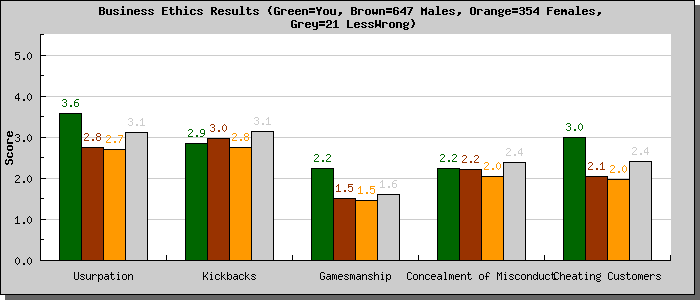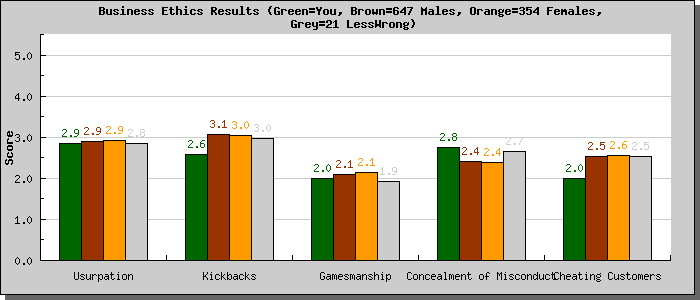YourMorals.Org |
||||
| Home |
Logout | Explore Your Morals | About Us | Links |
| Welcome gwern0@gmail.com - logout | ||||
|
The scale you completed was a measure of Individual Ethical Orientation,
developed by Farh, Burton, and Hegarty (1999) to measure individual ethical orientation.
The idea behind the scale is that there is very little
systematic
research on everyday ethical issues in business. This measure has been
tested
cross-culturally to show relevance for participants from Hong Kong,
mainland China and Taiwan. Specifically, a values structure
highlighting
the importance of self-transcendence values correlates with more ethical
behavioral orientations, while a values structure highlighting the
importance
of the self-enhancement dimension of values correlates with less ethical
behavioral orientations. Further, we are interested in
what behaviors are seen as unethical as while all individuals espouse
ethicality, different
types of behavior are often seen as being more or less relevant to
ethics, depending
on one's culture. In previous research, women have reported being more
ethical than men. Do you have ideas on improving this study? Or did you encounter any difficulties in answering the questions? Click here to send a message to the creators of this study. The graph below shows how often people say that they find various everyday ethical situations to be acceptable in everyday life. This business ethics questionnaire includes 5 categories: Usurpation of company resources, Offering kickbacks, Corporate gamesmanship, Concealment of misconduct, & Cheating Customers. Higher scores indicate greater acceptance of these behaviors. Self Responses:  Belief About Others' Responses:  |
Return to the "Explore" page.
|